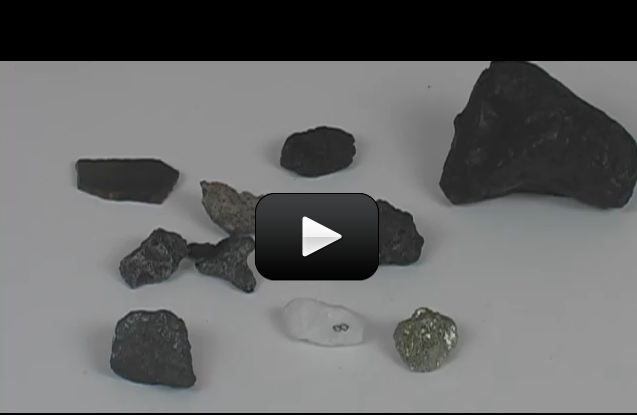A meteoroid is a small rock that zooms around outer space. When the meteoroid zips into the Earth’s atmosphere, it’s now called a meteor or “shooting star”. If the rock doesn’t vaporize en route, it’s called a meteorite as soon as it whacks into the ground. The word meteor comes from the Greek word for “high in the air.”
Meteorites are black, heavy (almost twice the normal rock density), and magnetic. However, there is an Earth-made rock that is also black, heavy, and magnetic (magnetite) that is not a meteorite. To tell the difference, scratch a line from both rocks onto an unglazed tile. Magnetite will leave a mark whereas the real meteorite will not.
Materials
- White paper
- Strong magnet
- Handheld magnifying glass (optional)


Meteorites can fall anywhere on earth, but it would be very difficult to find them in a developed area.
Are there gold meteorites in riverside, CA?
Where is the best place to find meteorites?
The best place to find meteorites is Antarctica. The barren landscape makes it easier to find them.
What is the largest hotspot for meteorites to land?
Meteorites fall all over the planet earth. But between forests and oceans, most are never found.
When was the most important meteor in history?
That is somewhat a matter of opinion. Most seem to give that title to the meteor that created Chicxulub crater in Mexico. Scientists think that its impact may have resulted in the extinction of dinosaurs.
Who was the first person to figure out that we aren’t the center of the solar system?
Credit for that is often given to the Nicolaus Copernicus from Poland, who lived from 1473 to 1543 (AD). However, history shows that Aristarchus of Samos proposed this concept way back in 270 BC.
Why did people send Rovers to Mars if we know that we can’t live on it?
We send probes and rovers to other planets for many reasons. One of the main reasons scientists send rovers to Mars (and other planets and moons) is that they are searching for life. A second big reason is that as we study the composition of other planets and moons, we learn more and more about how our solar system formed.
Where is the best place to find meteorites?
What is the largest hotspot for meteorites to land?
When was the most important meteor in history?
Who was the first person to figure out that we aren’t the center of the solar system?
Why did people send Rovers to Mars if we know that we can’t live on it?